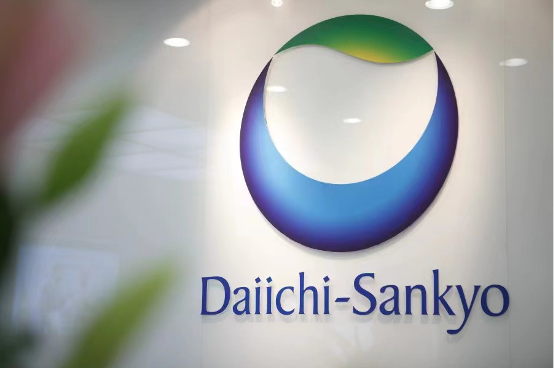The world’s first batch! Daiichi Sankyo’s TROP-2 ADCs have been approved for market launch
December 31, 2024
Source: drugdu
 624
624
 On December 27, Daiichi Sankyo announced that its TROP-2 ADC product Datopotamab deruxtecan (Dato DXd, Dedabothumab, trade name: Datoway) was approved for marketing in Japan for the treatment of adult breast cancer patients with hormone receptor (HR) positive, HER2 negative (IHC 0, IHC 1+or IHC 2+/ISH -), who had received chemotherapy and could not be resected or relapsed.
On December 27, Daiichi Sankyo announced that its TROP-2 ADC product Datopotamab deruxtecan (Dato DXd, Dedabothumab, trade name: Datoway) was approved for marketing in Japan for the treatment of adult breast cancer patients with hormone receptor (HR) positive, HER2 negative (IHC 0, IHC 1+or IHC 2+/ISH -), who had received chemotherapy and could not be resected or relapsed.
Dato DXd is the first TROP-2 ADC drug approved to treat HR positive and HER2 negative breast cancer in Japan, and also the second ADC drug approved to be developed based on Daiichi Sankyo DXd ADC technology.
The drug was jointly developed by AstraZeneca, the First and Third Republics, and has been applied for marketing in the United States (NSCLC, HR+/HER2- breast cancer), the European Union (NSCLC, HR+/HER2- breast cancer), and China (HR+/HER2- breast cancer).
This approval is based on data from a key Phase III clinical TROPION-Breast01 study.
The TROPION-Breast01 study is the first phase III clinical trial of breast cancer published by Dato DXd. It aims to evaluate the efficacy and safety of the chemotherapy scheme selected by Dato DXd comparison researchers in breast cancer with unresectable or metastatic HR positive, HER2 low expression or negative (IHC 0, IHC 1+or IHC 2+/ISH -) after previous endocrine therapy and at least one systemic treatment. The primary endpoints were PFS and OS evaluated by BICR.
The research results announced at the 2023 ESMO conference showed that in terms of the primary endpoint PFS, compared with the chemotherapy (ICC) selected by the researchers, Dato DXd used in endocrine treated patients with HR positive and HER2 negative metastatic breast cancer could significantly reduce the risk of disease progression or death by 37% (HR=0.63; 95% CI: 0.52-0.76; p<0.0001).
The median PFS in the Dato DXd treatment group was 6.9 months, while in the chemotherapy group it was 4.9 months. Consistent PFS benefits were observed in different subgroups. In addition, the ORR of the Dato DXd group was 36.4%, while that of the chemotherapy group was 22.9%. In the mid-term analysis of the study on the other primary endpoint OS, Dato DXd also showed a trend of improvement over chemotherapy OS as of the data deadline (HR=0.84; 95% CI: 0.62-1.14).
In terms of security, Dato DXd has overall good security and no new security issues have been identified. The incidence of treatment-related adverse events (TRAE) of grade 3 or higher in the Dato DXd treatment group and chemotherapy group was 21% and 45%, respectively, with the Dato DXd group accounting for less than half of the chemotherapy group.
On December 24th of this year, AstraZeneca and Daiichi Sankyo voluntarily withdrew their Dato DXd lung cancer indication marketing application submitted in the European Union, specifically for locally advanced or metastatic non squamous non-small cell lung cancer.
Source: https://pharm.jgvogel.cn/c1477666.shtml
By editorRead more on
- Gan & Lee Pharmaceuticals’ new PROTAC drug GLR2037 tablets have been approved for clinical trials to enter the field of prostate cancer treatment March 3, 2026
- AideaPharmaceuticals plans to raise no more than 1.277 billion yuan through a private placement to focus on the global clinical development of innovative HIV drugs March 3, 2026
- Giant Exits! Its Star Business Acquired March 3, 2026
- Focusing on cardiovascular and cerebrovascular diseases! OpenMediLead Medical Intelligence Dual Engines Launch Internal Testing, Connecting Drug Development and Clinical Diagnosis in a Closed Loop March 3, 2026
- Innovent Biologics Announces Approval of New Indication for BTK Inhibitor “Pitubrutinib” in China March 3, 2026
your submission has already been received.
OK
Subscribe
Please enter a valid Email address!
Submit
The most relevant industry news & insight will be sent to you every two weeks.



